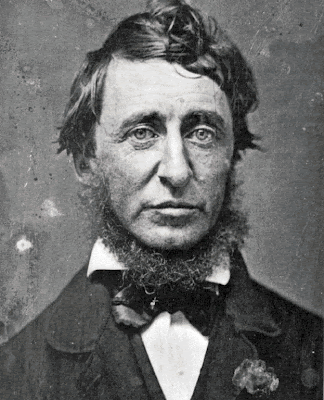
If you’re not familiar with Walden, to sum up: Thoreau, a nineteenth-century philosopher from Concord, Massachusetts, left town and built a shack next to Walden Pond where he lived for several years. Walden is a practical and philosophical guide to frugal living.
Thoreau extolled the virtues of voluntary poverty and the simple life. I, too, find something clean and healthy about spartan-living. Some of my finest moments have been spent alone in nature or traveling on hitchhikes.
The ascetic who immerses himself in nature or embarks on a holy pilgrimage wishes to thrust himself into the very throes of life. In so doing, he leaves the tidy, formulaic and unwavering character of conventional life to plunge into the very breeding grounds of the authentic experience.
By relying on our instincts and wits rather than on our wallets and families, we test ourselves, learn, grow; we can, in this way, reinvent our identities.
Not liking the man I thought I was becoming, I decided to steer my life in a different direction. I chose to live out of van for two purposes: 1. To eliminate the cost of rent so I can afford college and 2. To experiment with life.
Under most first-world definitions, I am poor. In two weeks, after my first tuition payment, I will be precariously close to penniless—and I use the term “penniless” quite literally. Stubbornly, and some may say foolishly, I’ve refused to take out loans.
I’ve already had my fair share of loans, and now that I’ve rid of them, I want nothing to do with them anymore. Anyone who’s been in debt knows that the money you get is in proportion to the freedom you give or, as Benjamin Franklin puts it: “A ploughman on his legs is higher than a gentleman on his knees.”
Even if I was wealthy and had the means to afford college and live comfortably, to be perfectly honest, there’s a good chance I’d still elect to live in a van. I’ve always been fascinated with how far the human body can be pushed and I can’t help but wonder where the fringes of my faculties lie. I suppose living in a van is a way to determine which things I really need, but also to test the resiliency of my body and mind.
*****************
Thoreau, who wrote Walden in 1854, saw the same rampant and unforgiving consumerism that we see today.
I oftentimes feel a sense of culture shock in my own culture. All the things–the iPhones, Hummers, chain stores–make me feel queasy; it’s as if I’ve wandered into some parallel, Disney-like universe that might be amusing for a weekend, but anything more would be like being stuck in a disturbing dream that you can’t wake up out of.
I can’t help but feel that there is something inherently wrong with a culture that embraces hedonistic shopping sprees with total disregard to the moral and environmental implications of such a lifestyle. And how unnatural it is to think (and to accept!) that we were meant to live by the time-clock. In punching in and punching out, we divide our lives into neat little segments: school, work, family, retirement, and death, leaving little room for anything more. Forty hours a week are squandered on what is, for most, if not back-breaking, then soul-crushing labor.
We “Thank God It’s Friday” and look at the rest of our week with dread, not thinking that we ought to be equally thankful for Mondays and Thursdays. We work to obtain what we commonly regard as “necessities,” which are, more often than not, trifling expenditures, bought both to justify the drudgery of our hard labor and to instill a false sense of freedom.
There comes a point when all the crap we buy weighs us down to the point when, to paraphrase Tyler Durdan of Fight Club, the things you own end up owing you. Call me poor but call me free. Too often are our dreams lost amidst closets of collected clutter; freedom comes easier to those who don’t have to shoulder the burden of their belongings.
Our money and things do ensure security. And while I acknowledge the many benefits of a safe neighborhood, a warm home, and three meals a day, security also functions as a muzzle, restraining our wilder sides from manifesting.
In ensuring safety and security, Suburbia–in all its immaculate orderliness–circumvents the chaos of nature that once, not long ago, was an integral component of our lives. When there is no more chaos, you have to create some. And that’s exactly what I’ve done. It’s obvious that my little enterprise is not a scheme to “get back to nature” as Thoreau’s was. Yet, despite my concrete surroundings, I feel that if I discard all the clutter and extraneous “things,” then I might be able to, as Thoreau puts it, “live so sturdily and Spartan-like as to put to rout all that was not life.”
While I acknowledge how my little experiment is, in part, fake, and my poverty isn’t exactly “real,” I find my simulation far more genuine than what is commonly regarded as the reality of the age.
I could have taken out loans, lived in a reasonably-priced apartment, and easily paid for everything in less than a year after graduation. Or I could have landed some decent-paying job, worked 40 hours a week, and carved out a neat little existence for myself somewhere in Anytown, America.
But where’s the fun in that? Where’s the opportunity for growth, where’s the risk, the adventure? For those things, I can manage a little discomfort.